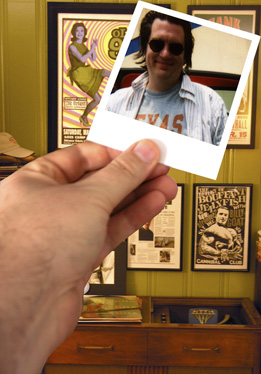
The New York Times reminds us that the largest military cemetary in Europe is for battle most people have never heard of and for a war that most people don't think of very often.
"The Meuse-Argonne American Cemetery, 26 miles northwest of Verdun. As exquisite as any French park or chateau grounds, the cemetery is a formal garden of perfectly clipped trees, immaculate lawns, fountains and roses and long white rows of grave markers. Given its beauty, it's also strange how empty the place is — and stranger still since this is the largest American military cemetery in Europe, the burial site of 14,246 United States service members who died in the war to end all wars."
These World War I cemeteries are rarely visited now. Most of the people who knew and loved the soldiers who rest here have passed into history themselves. It seems more than a little sad that those who gave the last full measure of devotion for our nation are largely forgotten.
Not forgotten by everyone -- the American Battle Monuments Commission continues to act as guardian of America’s overseas commemorative cemeteries and memorials. They honor the service, achievements and sacrifice of United States Armed Forces around the world.
My great uncle, Oscar Cheyne, was one of those doughboys who slogged through Meuse-Argonne campaign. Unlike the soldiers under those headstones, he made it back home, although with a mustard gas injury that lingered for the last 30 years of his life.
Sunday, September 30, 2007
Unknown Soldiers
Posted by
Steve-O
at
10:10 PM
![]()
Labels: cemeteries, First World War, obituaries
Subscribe to:
Post Comments (Atom)

3 comments:
I grew up near the intersection of Elm and Meuse Argonne streets in my hometown of Hicksville, OH. Three soldiers from Hicksville (pop. 3,400) died in that offensive; I know it well.
My grandfather, a German immigrant, served as an officer of the US Military in WWII and Korea. One of his postwar jobs was in Versailles and his office was near the Isle St. Germain. His job was with American Graves and Regisitration where he facilitated the trasfer of American war dead back home...or facilitated their burial in European military cemeteries. I wonder if anyone he took care of was sent here.
The remains of the American war dead that your grandfather repatriated went to different cemeteries around Europe dedicated to the dead of World War II. One of the amazing things about it is how many years it took to send the remains of some home and others to these new cemeteries. People like to talk about what the government can't do right, but when you think that around 450,000 Americans died in World War II, and most of them were buried where they fell, then exhumed years later to be returned to their families in the United States or interred in a new cemetery. This was a massive undertaking but one conducted with the care and respect of a grateful nation.
Men like your grandfather deserve our gratitude for completing this difficult but important task.
Post a Comment